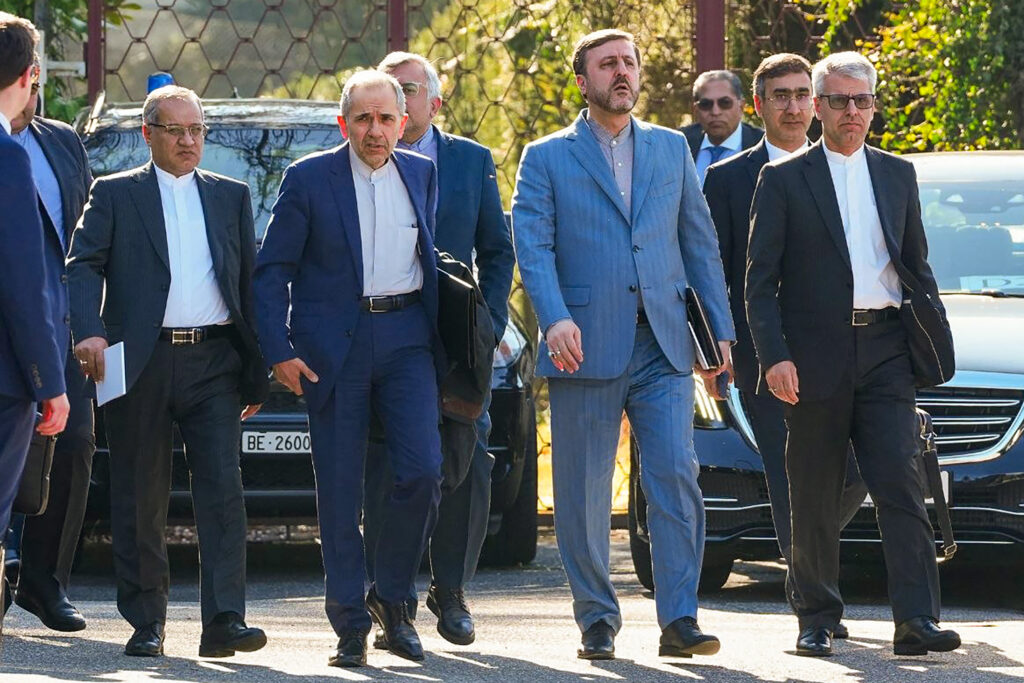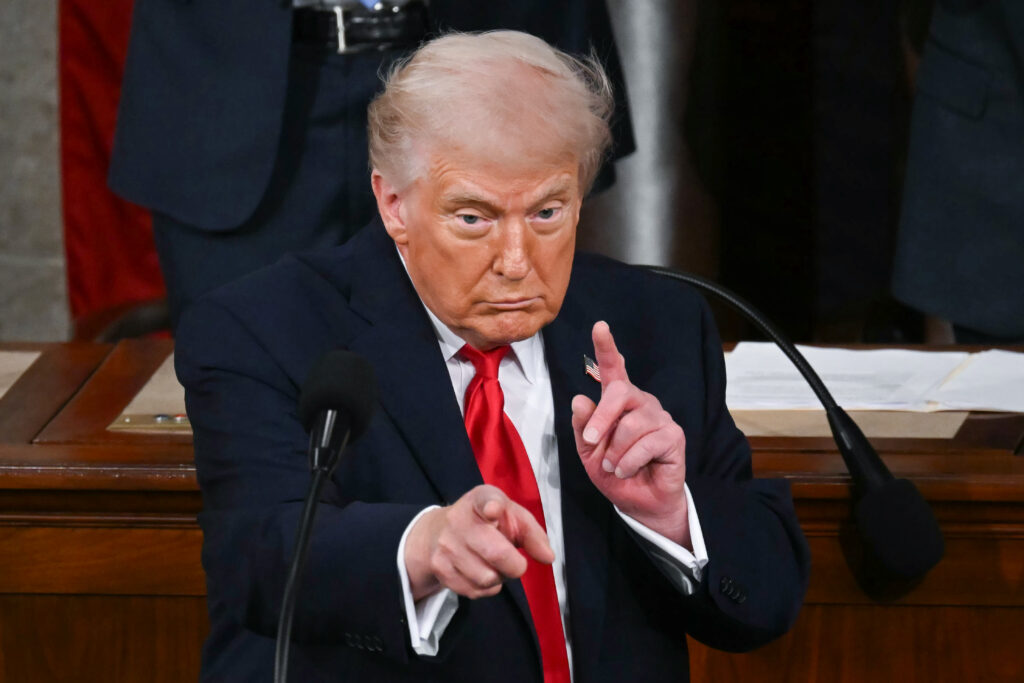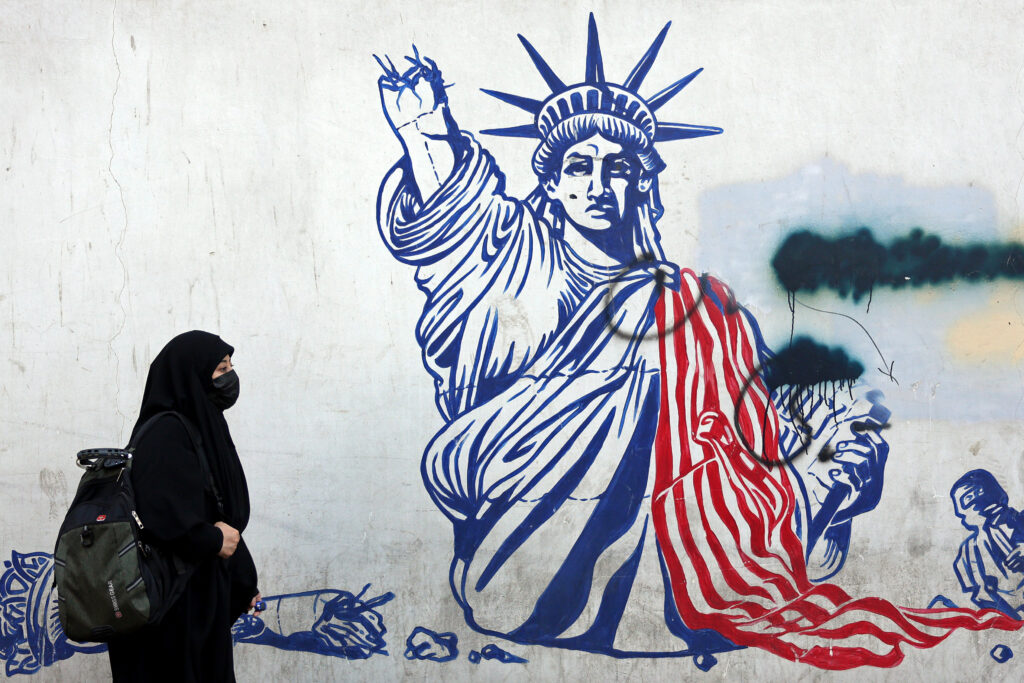AFP Asia Business
Iran says ‘good progress’ in US talks, next round within a week
Iran and the United States made “significant progress” in talks in Switzerland on Thursday, mediators said, after the latest round of negotiations to avert a war between the longtime foes, and agreed to further discussions next week in Austria.The Oman-mediated negotiations follow repeated threats from Donald Trump to strike Iran, with the US president last Thursday giving Tehran 15 days to reach a deal.While Iran has insisted the discussions focus solely on its nuclear programme, the US wants Tehran’s missile programme and its support for militant groups in the region curtailed.Iranian Foreign Minister Abbas Araghchi told state TV that the talks “made very good progress and entered into the elements of an agreement very seriously, both in the nuclear field and in the sanctions field”.He said the next round would take place in “perhaps less than a week”, with technical talks at the UN’s nuclear agency to begin in Vienna on MondayOmani Foreign Minister Badr Albusaidi also announced technical discussions were to be held “next week in Vienna”.”We have finished the day after significant progress in the negotiation between the United States and Iran,” he said in a post on X.The negotiations took place as the US continued its largest military buildup in the Middle East in decades.The US and Iranian delegations held a morning session at the Omani ambassador’s residence amid tight security, before pausing to hold consultations with their respective capitals.A second session began around 1700 GMT.Araghchi, in a post on social media overnight, called the latest round of talks “the most intense so far”.”It concluded with the mutual understanding that we will continue to engage in a more detailed manner on matters that are essential to any deal — including sanctions termination and nuclear-related steps,” Araghchi posted on X.UN nuclear chief Rafael Grossi joined the negotiations, a source close to the talks told AFP.- Dramatic buildup -The Wall Street Journal reported on Thursday that Trump’s negotiating team would demand that Iran dismantle its three main nuclear sites and hand over all its remaining enriched uranium to the United States.Iran’s President Masoud Pezeshkian insisted ahead of the talks that the Islamic republic was not “at all” seeking a nuclear weapon.As part of the dramatic US buildup, the USS Gerald R. Ford, the world’s largest aircraft carrier, sent to the Mediterranean this week, left a naval base in Crete on Thursday, an AFP photographer said.Washington currently has more than a dozen warships in the Middle East: one aircraft carrier — the USS Abraham Lincoln — nine destroyers and three other combat ships.It is rare for there to be two US aircraft carriers in the region.- ‘Sinister nuclear ambitions’ -In his State of the Union address on Tuesday, Trump accused Iran of “pursuing sinister nuclear ambitions”, though Tehran has always insisted its programme is for civilian purposes.Trump also claimed Tehran had “already developed missiles that can threaten Europe and our bases overseas.”The Iranian foreign ministry called these claims “big lies”.The maximum range of Iran’s missiles is 2,000 kilometres (1,200 miles), according to what Tehran has publicly disclosed.However, the US Congressional Research Service estimates they top out at about 3,000 kilometres — less than a third of the distance to the continental United States.Trump’s State of the Union accusations in Congress were delivered in the same forum in which then-president George W. Bush laid out the case for the invasion of Iraq in 2003.- ‘People would suffer’ -The US was represented by envoy Steve Witkoff and Jared Kushner, who is married to Trump’s daughter Ivanka.The two countries held talks earlier this month in Oman, then gathered for a second round in Geneva last week.A previous attempt at negotiations collapsed when Israel launched surprise strikes on Iran last June, beginning a 12-day war that Washington briefly joined to bomb Iranian nuclear sites.In January, Tehran launched a mass crackdown on nationwide protests that posed one of the greatest challenges to the Islamic republic since its inception.Protests have since resumed around Iranian universities.Tehran residents who spoke to AFP were divided on what renewed conflict would mean for them.”There would be famine and people would suffer a lot. People are suffering now, but at least with war, our fate might be clear,” 60-year-old homemaker Tayebeh said.burs/amj/dcp/ceg/lb
On Iran, Trump administration’s messaging is mixed
US President Donald Trump appears to be leaning toward strikes on Iran, but his administration is sending contradictory signals, alternating between threats and a willingness to talk — and muddying its justification for intervention.Opposition Democrats are meanwhile questioning the Republican president’s objectives, demanding that Congress be consulted before Trump takes the country to war.A third round of US-Iran talks concluded Thursday in Geneva, with mediator Oman speaking of “significant progress” being made, but the threat of potential conflict is causing significant concern in Washington.The US president has said he prefers the diplomatic route but is prepared to order limited strikes in the absence of a deal — a threat backed by a massive military force he has deployed in the Middle East.Speaking Wednesday in Saint Kitts and Nevis, US Secretary of State Marco Rubio seemed to temper expectations for the Geneva meeting, saying that “eventually we’ll have to have conversations about more than just a nuclear program.””I would say that the Iranian insistence on not discussing ballistic missiles is a big, big problem,” Rubio told reporters.In his State of the Union address to Congress on Tuesday, Trump spoke of Iran’s “sinister nuclear ambitions” and also accused Tehran of seeking to develop weapons that could hit the United States.”They’ve already developed missiles that can threaten Europe and our bases overseas, and they’re working to build missiles that will soon reach the United States of America,” Trump said.A Congressional Research Service report from 2025 said that Iran’s medium-range arsenal tops out at 1,850 miles (3,000 kilometers) — far short of US territory.As for whether Iran is currently enriching uranium, the Trump administration’s message remains mixed.- US Congress sidelined -“They’re not enriching right now, but they’re trying to get to the point where they ultimately can,” Rubio said Wednesday.US envoy Steve Witkoff, who took part in the Geneva talks alongside Trump’s son-in-law Jared Kushner, meanwhile said Saturday on Fox News that Iran had reached some 60 percent enrichment and is “probably a week away from having industrial-grade bombmaking material.”That assertion comes despite Trump’s continued claims that Washington’s forces obliterated Iran’s nuclear program with air and missile strikes last June.”It’s beginning to sound like 2003,” Carl Bildt, a former Swedish prime minister and current co-chair of the European Council on Foreign Relations, wrote on X Thursday.That year, then-US president George W. Bush justified his invasion of Iraq by saying the country possessed weapons of mass destruction — but none were ever found.”I don’t think there are any indications that (Iran) is developing intercontinental ballistic missiles, and claims that they have ballistic missiles able to hit Europe are also highly questionable,” Bildt said.In the United States, Democrats say that the federal legislature — the only body authorized by the US Constitution to declare war — is being sidelined.”Everyone is asking what the plan is with respect to Iran, and we’re all looking for answers that the administration has refused to give,” Senate Minority Leader Chuck Schumer said on the Senate floor Thursday.”The administration should come clean and tell the American people exactly what the goal is in Iran,” Schumer said.Top congressional leaders met behind closed doors Tuesday at the White House with Rubio, just before Trump’s address to Congress.Democratic lawmakers intend to force a vote next week in the Republican-controlled House of Representatives on a resolution requiring Trump to publicly make his case for war to Congress.”This legislation would require the president to come to Congress to make the case for using military force against Iran,” they said in a statement.A date for the vote has not been set.
Algeria archbishop welcomes pope visit as ‘dream come true’
Pope Leo XIV’s newly announced visit to Algeria in April was welcomed as a dream come true by the archbishop of Algiers on Thursday.The trip will mark the first time a head of the Catholic Church has visited the North African Muslim-majority country.”This dream of a pope visiting Algeria… has come true!” Jean-Paul Vesco, the Franco-Algerian cardinal of the Catholic Church who serves as the Archbishop of Algiers, wrote in a statement.He added that the pontiff had come to see “the Algeria of today, a meeting point between north and south, east and west, the West and the Arab-Muslim world”. French-language newspaper El Watan said the “symbolic” visit was “of great historical significance in a country where ancient Christian memory coexists with the Muslim reality of today”.Arabic-language newspaper El Khabar agreed the visit, which was announced by the Vatican on Tuesday, “carries a great symbolic and spiritual dimension”.For Leo, the trip is in honour of fifth-century Saint Augustine, who was born in modern-day Algeria and whose order he follows.Leo, who was elected in May last year, will visit the capital Algiers and the city of Annaba — where the Basilica of Saint Augustine stands — from April 13 to 15.The 70-year-old pontiff said the trip would allow him to “continue the discourse of dialogue and bridge-building between the Christian and the Muslim worlds”.After Algeria, the pope will visit Cameroon, Angola and Equatorial Guinea.The Algerian presidency on Wednesday said the pope’s trip reflected Algeria and the Vatican’s “shared belief in the need to build a world based on peace, dialogue, and justice, against the various challenges currently facing humanity”.
Iran, US make ‘significant progress’ in talks, says Oman FM
Iran and the United States made “significant progress” in talks in Switzerland on Thursday, Oman’s foreign minister said, at the end of the latest round of negotiations to avert a war between the longtime foes. The Oman-mediated discussions follow repeated threats from Donald Trump to strike Iran, with the US president last Thursday giving Tehran 15 days to reach a deal.While Iran has insisted the discussions focus solely on its nuclear programme, the US wants Tehran’s missile programme and its support for militant groups in the region curtailed.”We have finished the day after significant progress in the negotiation between the United States and Iran,” Badr Albusaidi said in a post on X, adding that “discussions on a technical level will take place next week in Vienna”.The talks took place as the US continued its largest military buildup in the Middle East in decades.The US and Iranian delegations held a morning session at the Omani ambassador’s residence amid tight security, before pausing to hold consultations with their respective capitals. AFP journalists saw convoys of cars belonging to US and Iranian diplomatic missions arriving back at the residence of Oman’s ambassador before 1700 GMT, following the break of several hours.Albusaidi said after the morning session that the two sides expressed “unprecedented openness to new and creative ideas and solutions”.UN nuclear chief Rafael Grossi joined the negotiations, a source close to the talks told AFP, with an Iranian state TV journalist also reporting he was attending.The Wall Street Journal reported on Thursday that Trump’s negotiating team would demand that Iran dismantle its three main nuclear sites and hand over all its remaining enriched uranium to the United States.Iran’s President Masoud Pezeshkian insisted ahead of the talks that the Islamic republic was not “at all” seeking a nuclear weapon.As part of the dramatic US build-up, the USS Gerald R. Ford, the world’s largest aircraft carrier, sent to the Mediterranean this week, left a naval base in Crete on Thursday, an AFP photographer said.Washington currently has more than a dozen warships in the Middle East: one aircraft carrier — the USS Abraham Lincoln — nine destroyers and three other combat ships.It is rare for there to be two US aircraft carriers, which carry dozens of warplanes and are crewed by thousands of sailors, in the region.The developments follow massive protests in Iran during which, rights groups say, thousands of demonstrators were killed.- ‘Sinister nuclear ambitions’ -In his State of the Union address on Tuesday, Trump accused Iran of “pursuing sinister nuclear ambitions”, though Tehran has always insisted its programme is for civilian purposes.Trump also claimed Tehran had “already developed missiles that can threaten Europe and our bases overseas, and they’re working to build missiles that will soon reach the United States of America”.The Iranian foreign ministry called these claims “big lies”.The maximum range of Iran’s missiles is 2,000 kilometres (1,200 miles), according to what Tehran has publicly disclosed. However, the US Congressional Research Service estimates they top out at about 3,000 kilometres — less than a third of the distance to the continental United States.Trump’s State of the Union accusations in Congress were delivered in the same forum in which then-president George W. Bush laid out the case for the invasion of Iraq in 2003.Ahead of Thursday’s talks, Secretary of State Marco Rubio warned that Iran must also negotiate on its missile programme, calling Tehran’s refusal to discuss ballistic weapons “a big, big problem”.He followed up by saying “the president wants diplomatic solutions”.- ‘People would suffer’ -Foreign Minister Abbas Araghchi, who led the Iranian delegation at the talks, had called them “a historic opportunity”, adding that a deal was “within reach”.The US was represented by envoy Steve Witkoff and Jared Kushner, who is married to Trump’s daughter Ivanka.The two countries held talks earlier this month in Oman, then gathered for a second round in Geneva last week.A previous attempt at negotiations collapsed when Israel launched surprise strikes on Iran last June, beginning a 12-day war that Washington briefly joined to bomb Iranian nuclear sites.In January, Tehran launched a mass crackdown on nationwide protests that posed one of the greatest challenges to the Islamic republic since its inception.Protests have since resumed around Iranian universities.Tehran residents who spoke to AFP were divided on what renewed conflict would mean for them.”There would be famine and people would suffer a lot. People are suffering now, but at least with war, our fate might be clear,” 60-year-old homemaker Tayebeh said.burs/amj/dcp




